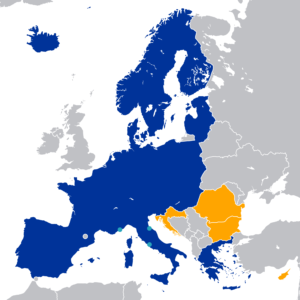EU Extends Schengen Border Controls
The European Union agreed on November 12 to extend temporary border controls inside the Schengen Zone for an additional three months in response to the ongoing migrant crisis. The European Council and the head of the European Commission Jean-Claude Juncker approved the recommendation. The Schengen accords, enacted in 1995 by the European Economic Community, have progressively removed interior border checks and encouraged judicial cooperation between its 26 member states. However, temporary border controls were first enacted last year within the Schengen Zone to help cope with rising security concerns about immigration. These border controls allowed heightened police presence as a way to prevent undocumented immigrants from North African and Middle Eastern countries to travel freely within the EU once they arrive in Italy or Greece.

Recently, however, the European Council granted extensions to these border controls to the countries of Germany, Austria, Denmark, Sweden, and Norway. In a statement from October 25, when the extension was first proposed, the European Commission explained that “even if the situation stabilized a bit, the conditions for the full return to the Schengen zone would not be met.”
Slovak Interior Minister Robert Kalinak, whose country currently holds the rotating presidency of the EU, announced in a statement that “our ultimate objective is to get back to Schengen as soon as possible.” He claimed that security concerns are improving from last year and that the extension would therefore only last a few months. He also specified that more detailed and comprehensive reporting would be required compared to previous border controls. This means that the member states who have been granted extensions must report back to the European Commission each month, assessing whether the internal border controls remain necessary to their national security.
In the past, the EU had said it wanted to return to a fully-functioning Schengen Zone by the end of 2016. However, with these new extensions, this deadline will not be met, and countries will continue to have more control over their borders. Nonetheless, in a statement issued by the European Council, member states are clearly advised to utilize these border controls only for a limited period of time, addressing “what is strictly necessary to respond to the serious threat and to safeguard public policy.”
